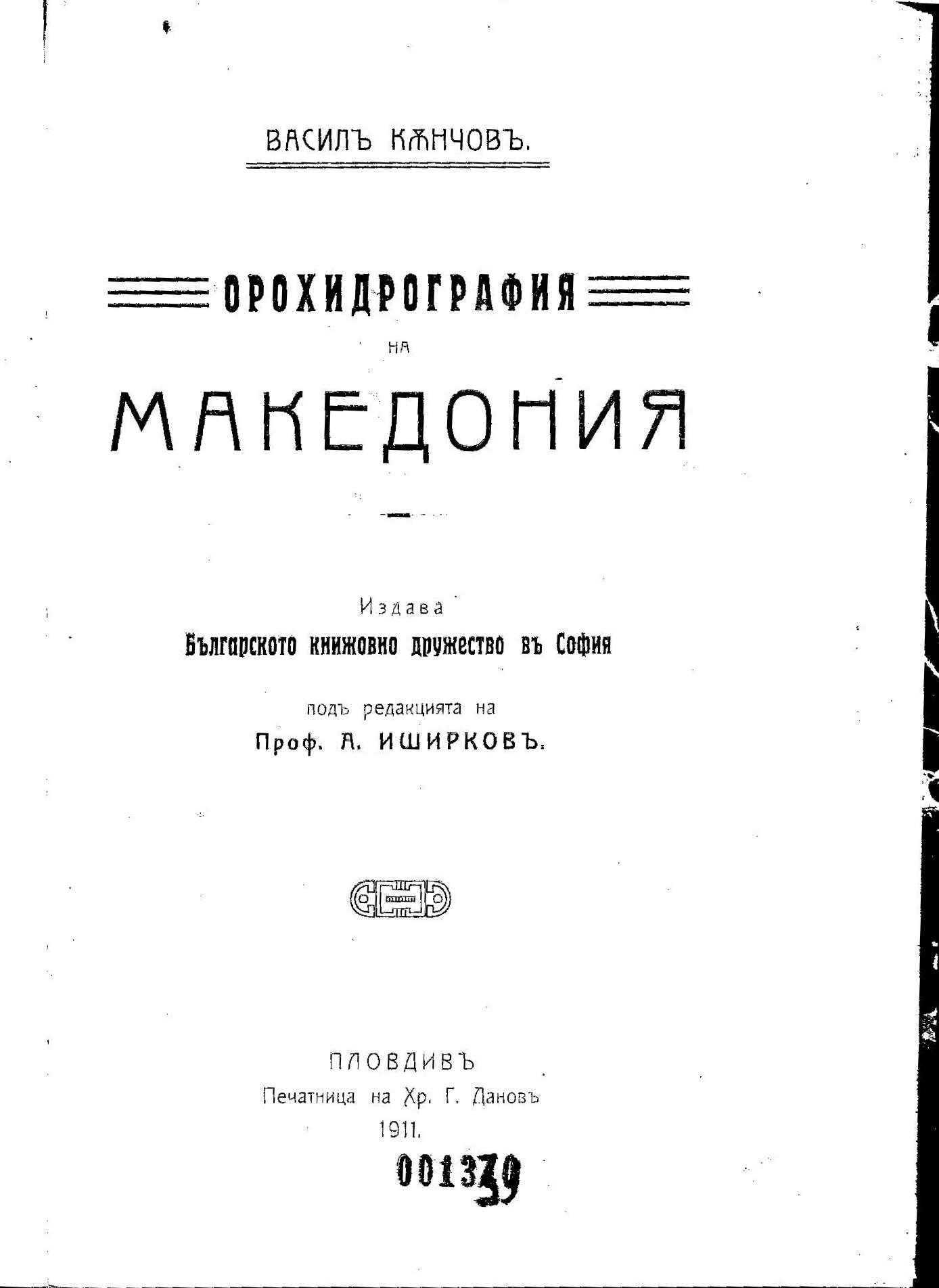I am starting this thread so we can accumulate documents in regards to the Bulgarian ethnographer Vasil Kanchov.
He published a book in 1900 called "Macedonia — ethnography and statistics". Albeit Macedonians were denoted as Bulgarians in this book and on the including map.
What is very interesting is that in 1911 he published a book called "Orohydrography of Macedonia" in which he himself refutes the fact that the Bulgarians of Macedonia did not consider themselves Bulgarians but rather Macedonians only.
Title page.

First page.

Here is the important passage on page one translated into English:
Greeks form Macedonia do not call themselves Macedonians........ 
He published a book in 1900 called "Macedonia — ethnography and statistics". Albeit Macedonians were denoted as Bulgarians in this book and on the including map.
What is very interesting is that in 1911 he published a book called "Orohydrography of Macedonia" in which he himself refutes the fact that the Bulgarians of Macedonia did not consider themselves Bulgarians but rather Macedonians only.
Title page.

First page.

Here is the important passage on page one translated into English:
It is impossible to give precise borders of the area of Macedonia, since this country is not limited with some strict geographic features, nor is it administratively separated by the other countries. Only in the ethnographic sense Macedonia has defined borders, since the Bulgarian tribe is settled in the entire country, and rarely exits its limits. The areas to the north, west and south of Macedonia have predominantly other population. To determine its borders we will follow mainly the main perception of the population and the determination given by the most skilled recent travelers. The local Bulgarians and Kucovlachs who live in the area of Macedonia call themselves Macedonians, and the surrounding nations call them Macedonians. Turks and Albanians from Macedonia do not call themselves Macedonians, but when asked where they are from, they respond: from Macedonia... also Greeks who live in the southern area of Macedonia, do not call themselves Macedonians...

 )
)
Comment